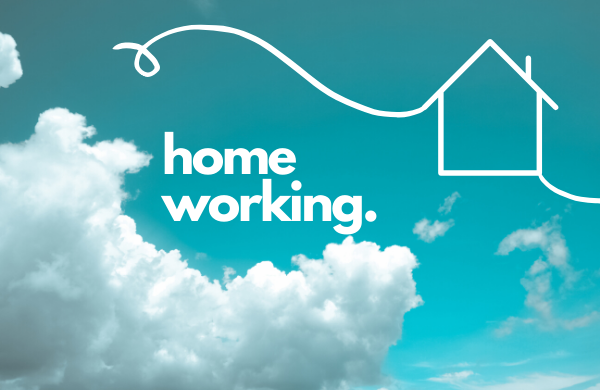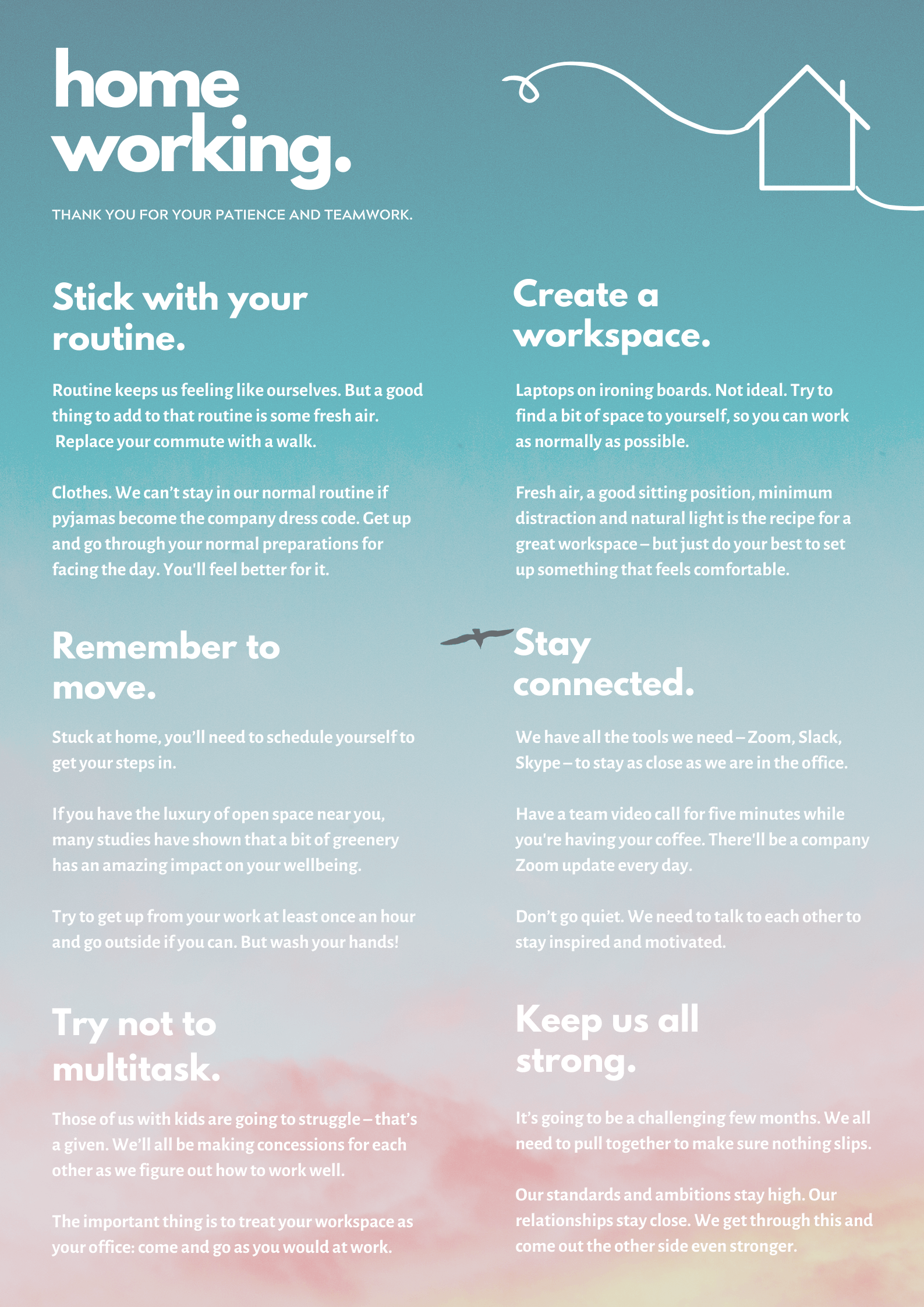
This isn’t one I thought I’d be writing. Internal brand is always important but I’m only now seeing just how important when it’s put to the test.
Usually, internal brand is about keeping everyone in a business connected to shared values. It helps us all create documents or communications that look right, talk to customers in a cohesive way and work in line with the company’s overall business plan.
But it’s March 2020 and we’re now living in a crisis – a crisis that affects people’s health, financial security and long-term prospects. How you talk to employees at this time is VITAL. When you’re relaying worrying information and potentially asking your staff to make sacrifices along with you, internal brand is your saviour.
Where your internal brand helps during a business crisis
1. Company updates
When you’re looking at a global crisis, there’s information everywhere. Your employees need to know how what’s happening in the world affects THEM. Management’s job is to work that out and relay it to staff.
Currently, that’s how the spread of the novel coronavirus COVID-19 is affecting businesses and in turn, people’s livelihoods. Companies that meet regularly for an open discussion of how the business is doing are now in a strong position because that format (and trust) already exists as part of their internal brand building.
A weekly stand-up becomes a daily CEO update. Right now, for most people used to working in an office, that’s remotely. Get everyone on Zoom and update them all at once, with the same tone as always. When it’s guaranteed to be bad news, the most important thing is everyone feeling involved and informed.
Meeting every day also supports people while they’re prone to feeling lonely and worried, especially if they’re used to working side-by-side. Morale during this time apart is of the utmost importance.
2. Guidelines for homeworking
No one wants to be patronised. I’ve seen hundreds of articles about how to work effectively from home spring up…and they all say the same thing. If your employees have actually worked from home before, teaching them to suck eggs is only going to cause resentment.
However, internally, you may want to put together something that advises people on how to maintain their wellbeing as they make the adjustment to full-time homeworking.
The very last thing you should consider is setting rules. In a crisis, when all is uncertain, feeling restricted by your employer – who should trust you to do your job – is just one more negative in a whole mess of negatives.
The focus should instead be on helping staff stay sane, stay connected to one another and stay positive about getting the business back on track.
My gentle homeworking tips
Sending out a guide to homeworking is less about the tips and more about reassurance. It impresses on your employees that you care about their wellbeing, you’re ready to make concessions and you want everyone to thrive, not just survive.
My example is based on how I’ve helped introduce homeworking to a group of responsible adults who really don’t need a lecture.
3. Giving bad news
In an economic crisis, businesses have to communicate truly awful news to their employees. Pay freezes. Requests for salary sacrifices. Bonus deferments. My friend’s been asked to give up her paid holiday and ‘invited’ to take an unpaid sabbatical. My husband has been cut to half-time.
No one wants to deliver that news and no one wants to receive it. If you have a strong internal brand to rely on, this horrible process is a little bit easier. How you’ve communicated in the past and how you communicate now, in a time of crisis, makes the difference.
Because when employees are used to being treated like a part of something they built together, they can feel pride in shouldering some responsibility for the company’s survival. They can feel trust that the business will repay their loyalty, and certainty that these measures will ensure their future security.
Brand does that.






